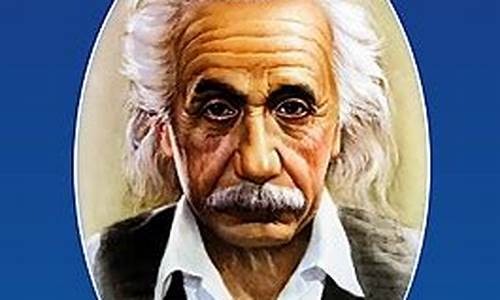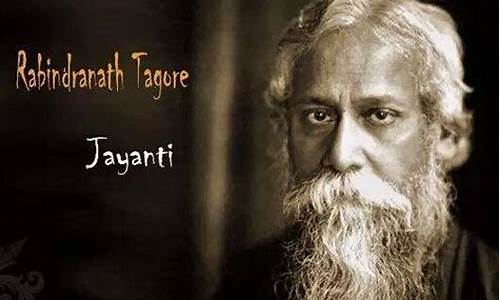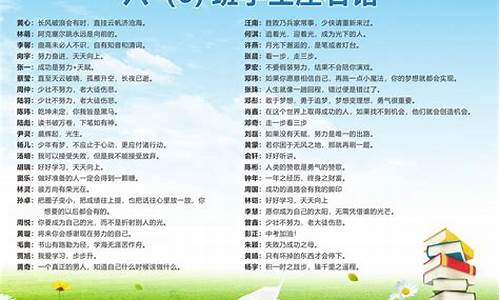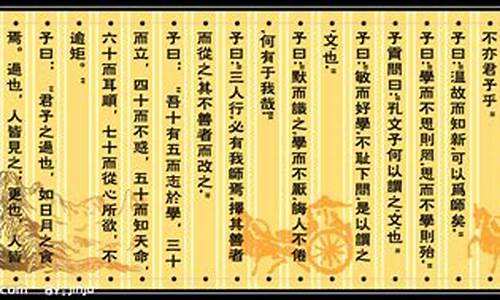您现在的位置是: 首页 > 经典语录 经典语录
英语句子知识点_英语句子含知识点
tamoadmin 2024-09-09 人已围观
简介1.初一上册英语语法知识点归纳2.初二英语上册知识点 八年级英语重点知识归纳总结3.小学三年级英语重点句子知识点4.词类和句子成分的关系初中英语知识点梳理5.英语的句子成分有哪些?1.Whendoyoueatdinner?Ieatdinnerat7:00intheevening. 2.Whendoyougetup?Iusuallygetupat12:00noon. 3.Whatdoyoudoont
1.初一上册英语语法知识点归纳
2.初二英语上册知识点 八年级英语重点知识归纳总结
3.小学三年级英语重点句子知识点
4.词类和句子成分的关系初中英语知识点梳理
5.英语的句子成分有哪些?

1.Whendoyoueatdinner?Ieatdinnerat7:00intheevening.
2.Whendoyougetup?Iusuallygetupat12:00noon.
3.Whatdoyoudoontheweekend?
4.UsuallyIwatchTVandgoshopping.SometimesIvisitmygrandparents.
5.Ioftenplayfootball.SometimesIgohiking.
6.What’syourfouriteseason?Winter.
7.Whichseasondoyoulikebest?Fall.
8.It’salwayssunnyandcool.
9.Icanplaywithsnow.
10.Whydoyoulikespring?BecauseIcanplanttrees.
11.Whenisyourbirthday?MybirthdayisinJune.
12.IsyourbirthdayinJune,too?No.MybirthdayisinDecember.
13.It’sOctober1st,ourNationalDay.
14.WhohasabirthdayinOctober?Me.
15.What’sthedate?It’sOctober1st.
16.Whatareyoudoing?Iandoingthedishes.
17.Whatisyourfatherdoing?He’swritingane-mail.
18.ThisisNina.CanIspeaktoyourmom,please?
19.Pleaseholdon.There’sacallforyou.
20.Iseethemotherelephant.
初一上册英语语法知识点归纳
掌握好英语语法是学好英语的重要环节。下面是我收集整理的初二英语语法知识点以供大家学习。
?
初二英语语法知识点:定冠词the的运用
?If you he the intention to sell your flat. Please don't hesitate to call us, we'll offer you hightest selling price.?
第一个错误是句型形式?he the intention to sell?的错误;正确的形式是:intend to sell 或 he the intention of selling.
另外两个错误和标点符号有关。一个是在副词分句后面不该用句点而用;另一个是应该用句点的地方而不用。
?If?flat?是条件副词分句,不可独立生存,必须依赖后头的主句?please?us?,才可以成为完整的复杂句(complex sentence)。这样一来,主句前面的句点,就要改成逗号(,)了。
另外一个错误是两个主句之间既没有句点也没有连接词,而只有逗号;这种错误叫 run-on sentence:
, please don't hesitate to call us, we
这个 句子 里的逗号(,)要改为句点(。)才对:
Please don't hesitate to call us. We
不用句点也可以,但要用恰当的连接词,如:
,please don't hesitate to call us, as we'll offer you
谈了3 个错误,现在来谈最后一个错误,就是定冠词( definite article)的消失:
?We'll offer you highest selling price.?
习惯上,最高级形容词(the superlative degree of adjectives)前面要用定冠词 the.因此,这句话要改为:
?We'll offer you the highest selling price.?
必须使用定冠词的例子
接下来,顺便把其他必须用定冠词的场合列下,作为参考。
一、表示世上唯一的事物,如:
①the sun; the earth; the sky; the North Pole
二、当一个名词被再次提起时,如:
②A car knocked against a tree. We can still see the mark on the tree made by the car.
三、当名词后面有个修饰作用的 短语 或分句时,如:
③The girl in red is my sister.
④The thief who stole your wallet yesterday was arrested.
四、加在某些形容词前面,以表示某类人或事,如:
⑤The rich often get richer and the poor, poorer.
⑥The doctor lost no time in giving help to the injured.
⑦Don't expect the impossible.
加在某些山川、河流、岛屿、国家名称之前,如:
⑧the Alps; the Thames; the British Isles; the Philippines; the Atlantic Ocean.
初二英语语法知识点:动词的运用
英语的动词必须在人称(person)、数目(number)、性别( gender)和格(case)这些方面和主语取得一致或互相呼应。
在学生的英文 作文 中,动词与主语呼应上的错误,经常出现。
下面这句话来自一个重要的公共部门的通告,里面也出现了动词与主语不一致的错误:
ABC corporation, with its five main subsidiary companies, he taken over the operations of the previous electricity and gas departments of XXX with effect from 1 october 1995.
这里的主语是?ABC corporation?,它是单数的,动词也应该是单数的 has,不是复数的 he,因此犯了动词与主语不对应的错误。
既然这是个常见的错误,我们便要特别留意,并且记住下面这些指导原则:
?动词和主语在人称和数目上要一致,如:
① I am a writer.
② Helen is an editor.
③ They he a good future.
④ Dr Chen teaches us English.
⑤ Some old houses were burnt to the ground.
⑥ A deserted hut has already been demolished.
?两个或两个以上的单数主语由连接词?and?贯串起来时,便成了复数,动词也要复数,如:
⑦ Did and Jason are colleagues.
⑧The driver and the passenger were involved in a quarrel.
?两个主语由?with?或?as well as ?等连接时,动词要和第一个主语的人称及数目呼应,如:
⑨ A woman with her puppies is walking along the lake.
⑩ The monitor as well as the other students has been scolded.
?两个主语由?either?or?或?neither?nor?连接时,动词要和第二个主语的人称及数目呼应,如:
11. Either you or your friend is wrong.
12. Neither John nor his classmates he said it.
?集合名词(collective noun)当整体看待时,动词是单数。
13. The steering committee is made up of five members.
14. The jury has made its final decision.
有时可以个别看待集合名词里的成员,这时这些成员合起来便变成复数,动词也是复数了,如:
15. The committee he met once and they will meet again next month.
16. Despite hours of deliberations, the jury were still divided in their opinions.
?
初二英语语法知识点:不定冠词a/an的用法
不定冠词最基本的用途就是用来表示?一?这概念,如:
① A stitch in time ses nine.
② Jason is an internationally known scholar.
此外,a/an 还有下列6种用途:
一、常和time、measurement等有关的名词连用,以表示?每? 的概念,如:
③ I teach five days a week.
④ This type of vegetables is sold at one dollar a kilo.
⑤ My car usually runs sixty kilometres an hour.
二、常和 hundred, thousand, dozen 以及数目及数量连用,如:
⑥ That factory turns out at least a hundred tyres a day.
⑦ Noel's monthly salary is a thousand dollars.
⑧ I he a number of sponsored students.
⑨ Mary has a lot of money.
三、在?of / at?后面出现,以表示?同一类?这概念,如:
⑩Birds of a feather flock together.
11. Please come one at a time.
12. Things of a kind come together, so do people of a mind.
四、常在?rather, quite, many, half, what, such?等字后面出现,形成固定用法,如:
13. Tom is rather a fool.
14. I think Chinese is quite a useful language.
15. Many a student has asked that question.
16. The visitor left half an hour ago.
17. What a fine day it is!
18. How can you say such a thing?
五、用在?so, as, too, how +形容词?这些结构里,如:
19. We he not had so hot a day before.
20. Susan is as clever a girl as Anna.
21. That is too difficult a book for beginners.
22. No one knew how serious a problem it was until later.
六、出现在许多惯用语中,如:
23. Bob always has a bone to pick with others.
24. Some students turned a deaf ear to the teacher's advice.
25. All must learn a language with an eye to mastering it.
26. I hope you will make an effort to attend the meeting punctually.
27. Jason has an ersion to being idle.
28. The news of Jack's sudden resignation came as a bolt from the blue.
初二英语上册知识点 八年级英语重点知识归纳总结
初一上册英语语法知识点归纳 1
句子种类
(1)按使用目的可分为陈述句、疑问句、祈使句和感叹句。
1)陈述句(Declarative Sentences):说明一个事实或陈述看法。
She is at home. 她在家。
He speaks English. 他讲英语。
2)疑问句(Interrogative Sentences):提出问题。有以下四种:
a. 一般疑问句(General Questions):
Is this your pencil? 这是你的铅笔吗?
b. 特殊疑问句(W Questions; H Questions):
Where do you live? 你住哪儿?
How do you know that? 你怎么知道那件事?
c. 选择疑问句(Alternative Questions):
Do you like tea or juice?
你是要茶还是果汁?
d. 反意疑问句(Tag-Questions):
He knows her, doesn’t he?
他认识她,对不对?
3)祈使句(Imperative Sentences):提出请求,建议或发出命令,例如:
Sit down, please. 请坐。
Let’s go home! 让我们回家吧!
4)感叹句(Exclamatory Sentences):表示说话人惊奇、喜悦、愤怒等情绪,例如:
What good news it is! 多好的消息啊!
初一上册英语语法知识点归纳 2单数句变复数句
1. 可数名词单数要变为其相应的复数形式。
It is a box.→ They are boxes.
2. 各个人称代词要由单数形式变为复数形式。
She is a girl.→ They are girls. I am at home.→ We are at home.
3. am或is 要变为are.
He is a teacher. → They are teachers.
4. 指示代词this或that要分别变为these或those。
This is a pencil.→ These are pencils.
5. 不定冠词a/an要去掉(固定搭配例外)。
It is a black cat.→ They are black cats.
6. man或 woman做定语修饰可数名词,在整个句子变成复数的'情况下也要变成 men或women.
She is a woman teacher.→ They are women teachers.
注意:在单数句变复数句时,普通单数变为复数形式,但当名词修饰名词时,起修饰作用的名词不做变化。名词修饰名词常用单数。(man, woman除外)
This is a le tree.→ These are le trees.
初一上册英语语法知识点归纳 3词类
1. 名词表示人或事物名称的词 teacher, book , pen 主,表,补,定,同
2. 代词代替名词、形容词或数词等 we, my, some, this 主,表,宾,定,同
3. 数词表示数目或顺序 two, first, fifth 主,表,宾,定,同
4. 动词表示动词或状态 be, take, look 谓语动词
to work, working, worked 主,表,宾,补,定,状
5. 形容词修饰名词,表示人或事物的性质和特征 good, big, nice, beautiful表,补,定,同
6. 副词表示动作特征或形状特征修饰动词形容词或其他副词 fast, nearly, hily, here 表,状
7. 冠词用在名词前帮助说明名词所指的人或事物 a , an, the
8. 介词表示名词或代词与其他词的关系 in, on, under
9. 连词连接词与词,短语和短语,句子和句子 and, if, but, or
10. 感叹词表示说话时的感情或语气 oh, hello, hi
初一上册英语语法知识点归纳 4like一词的用法
like用作及物动词,译为“喜欢”。
(1)后接名词或代词,表示喜欢某人或某物。如:
I like the baby very much. 我非常喜欢这个小孩。
(2)后接动名词(v. -ing),表示“喜欢做某事”,着重于习惯、爱好。如:
Tom likes playing football. 汤姆喜欢踢足球。
(3)后接动词不定式(to do ),表示“偶尔地喜欢做某事”,着重于某次具体的行为。如:
I like reading, but I like to watch TV this evening. 我喜欢读书,但我今晚想看电视。
句子单数变复数,注意以下五要素
(1)主格人称代词要变成相应的复数主格人称代词,即I→we, you→you,she,he,it→ they。
如:She is a girl. →They are girls.
(2)am,is要变为are。如:
I’m a student. →We are students.
(3)不定冠词a,an要去掉。如:
He is a boy. →They are boys.
(4)普通单数名词要变为复数形式。如:
It is an le. →They are les.
(5)指示代词this,that要变为these,those。如:
This is a box. →These are boxes.
英语日期的表示法
英语中月份和星期名称都是专有名词,它们的首字母必须大写,并且前面无需用冠词。
用英语表示日期,其顺序为月+日+年,日和年之间需用逗号隔开。如:August 2nd,2003(2003年8月2日)。也可以用日+月+年来表示。如:10th May,2003(2003年5月10日)英语日期前介词的使用:若指在哪一年或哪一月,则用介词in,若具体到某一天,则需用介词on。
时间的表达法
(1) 直读式,即直接读出时间数字
7: 05 seven five 8:16 eight six
(2) 过、差式,即几点差几分,几点过几分。(以30分为分界线)
1:25 twenty-five past one 2:30 half past two
3:43 seven to four 4:38 twenty-two to five
(3)12小时制
6:00 a.m. 上午6点 8:20 p.m. 下午8点20分
(4)24小时制
13:00 13点钟 22:15 22点15分
(5)15分可用quarter
4:15 a quarter past four 5:45 a quarter to six
(6)时间前通常用at.
at 5 o’clock at 7:30 p.m.
want用法
(1)想干什么用want to do sth
They want to join the sports club. 他们想加入运动俱乐部。
(2)第三人称单数作主语,want要作变化
①He wants to play basketball.
②Li Xia wants to play the piano.
(3)变疑问句,否定句要借助助动词do或does.
①-Do you want to play ball ? -Yes , I do . / No , I don’t.
②-Does he want to go home by bus ? -Yes , he does . / No , he doesn’t.
小学三年级英语重点句子知识点
为了帮助大家更好学习初二英语,提高英语成绩,我为大家整理了初二上册英语必背的重点知识,供参考!
初二英语上册所有重点知识点
一. 形容词/副词的比较级和最高级
1. 形容词/副词的比较级和最高级的构成规则
(1)单音节词和少数以-er,-ow结尾的双音节单词,比较级在后面加-er,最高级在后面加-est。
① 单音节单词
small→smaller→smallest
short→shorter→shortest
tall→taller→tallest
great→greater→greatest
② 少数以-er,-ow结尾的双音节单词
clever→cleverer→cleverest
narrow→narrower→narrowest
(2)以不发音e结尾的单音节单词,比较级在原形后加-r,最高级在原级后加-st。
large→larger→largest
nice→nicer→nicest
able→abler→ablest
(3)以一个辅音字母结尾的闭音节(即:辅音+元音+辅音)单词中,先双写末尾的辅音字母,比较级加-er,最高级加-est。
big→bigger→biggest
hot→hotter→hottest
fat→fatter→fattest
(4)以“辅音字母+y”结尾的双音节词, 把y改为i,比较级加-er,最高级加-est。
easy→easier→easiest
hey→heier→heiest
busy→busier→busiest
hy→hier→hiest
(5)其他双音节词和多音节词,比较级在前面加more,最高级在前面加most。
beautiful→more beautiful→most beautiful
different→more different→most different
easily→more easily→most easily
(6)有少数形容词、副词的比较级和最高级是不规则的,必须熟记。
good→better→best
well→better→best
bad→worse→worst
ill→worse→worst
old→older/elder→oldest/eldest
many/much→more→most
little→less→least
far →further/farther→ furthest/farthest
2. 形容词和副词比较级的用法
(1)“甲+be+(倍数)+形容词比较级+than+乙”表示“甲比乙…”或“甲比乙…几倍”。
Tom is taller than Kate.
汤姆比凯特高。
This room is three times bigger than that one.
这个房间比那个大三倍。
(2)“甲+实意动词+(倍数)+副词比较级+than+乙”表示“甲比乙…”或“甲比乙…几倍”。
I got up earlier than my mother this morning.
我今天早晨起床比我妈妈还早。
He runs three times faster than his brother.
他跑的速度比他弟弟倍。
3. 形容词和副词最高级的用法
(1)“主语+be+the+形容词最高级(+单数名词)+in/of...”表示“……是……中最……的”。
Tom is the tallest in his class./of all the students.
汤姆是他们班上/所有学生当中最高的。
This le is the biggest of the five.
这个苹果是五个当中最大的。
(2)“主语+实意动词+(the)+副词最高级+in/of...”表示“……是……中最……的”。
I jump (the) farthest in my class.
我是我们班跳得最远的。
二. 句子成分
1.主语:句子所陈述的对象。
2.谓语:主语发出的动作。一般是有动作意义的动词。
3. 宾语:分为动词宾语和介词宾语,属于动作的承受者。
4. 系动词:表示状态或状态变化的动词,没有实际的动作意义。如 be, 感官系动词(look, sound, smell, taste 和 feel)、保持类系动词(keep, stay 和 remain)、状态变化类系动词(become、get、turn 和 go)等。
5. 表语:紧跟系动词后面的成分。
6. 定语:修饰名词或代词的成分。
7. 状语: 修饰形容词、副词、动词或句子的成分。
8. 补语:分为宾语补足语和主语补足语。是对宾语和主语的补充说明,与其有主动或被动的逻辑关系。
例如:You should keep the room clean and tidy.
你应该让屋子保持干净整洁。
(You是主语, should keep是谓语,the room是宾语,clean and tidy是宾语补足语。)
This kind of food tastes delicious.
这种食物吃起来很可口。
(This kind of food是主语, tastes是系动词, delicious是表语。)
注意:主语、谓语、宾语、系动词、表语、补语是一个句子的主干成分;定语和状语是一个句子的修饰性成分,不是主干成分。
三. 句子类型
1. 简单句的基本形式是由一个主语加一个谓语构成。
2. 复合句由一个主句和一个或一个以上的从句构成。
3. 两个或两个以上的简单句用并列连词连在一起构成的句子,叫做并列句,其基本结构是“简单句+并列连词+简单句”。
四. 简单句的五种基本句型
1.“主语 + 谓语”(即“主谓”句型)
例:They arrived in Harbin yesterday morning.
分析:“they”(主语)“arrived”(谓语)。
2.“主语 + 谓语 + 宾语”(即“主谓宾”句型)
例:I study English.
分析:“I”(主语)“study”(谓语动作)“English”(宾语即动作涉及的对象)。
3.“主语 + 谓语 + 间接宾语 + 直接宾语”(即“主谓双宾”句型)
例:Our teacher taught us English.
分析:“our teacher”(主语)“教”(谓语动作)“us”(间接宾语)“English”(直接宾语)。
4.“主语 + 谓语 + 宾语 + 宾语补足语”(即“主谓宾宾补”句型)
例: He asked her to go there.
分析:“he”(主语)“asked”(谓语动作)“her”(宾语即动作涉及的对象)“to go there”(补语—补充说明宾语做什么)。
5.“主语 + 系动词+ 表语”(即“主系表”句型)
常用的系动词有be, keep,lie, remain, stand, become, fall, get, go, grow, turn, look, feel, seem, smell, sound, taste, 等。
例: I am a teacher. 我是一名老师
分析:“I”(主语)“am”(系动词)“a teacher”(表语—即表明主语的身份)。
五. 宾语从句
1. 宾语从句的含义
在主句中做宾语的从句叫做宾语从句。
如:She knew that the teacher had seen the film.
她知道这位老师看过这部**。
“that the teacher had seen the film”做 knew 的宾语,同时又是由连接词 that 引导的从句,所以它叫做宾语从句。
2. 宾语从句的分类
(1)动词宾语从句:顾名思义,它是位于动词后面的宾语从句。
如:He asked whose handwriting was the best in our class.他问我们班上谁的书法最好。
(2)介词宾语从句:顾名思义,它是位于介词后面的宾语从句。
如:I agree with what you said just now.我同意你刚才说的话。
(3)形容词宾语从句:顾名思义,它是位于形容词后面的宾语从句。
如:I am afraid that I will be late. 恐怕我要迟到了。
3. 引导名词性从句的连接词
(1)that:没有含义,在宾语从句中不做成分
(2)whether/if:表示是否,在宾语从句中不做成分。
I don't know if /whether he still lives here after so many years. 我不知道这么多年后,他是否还住在这里。
(3)连接代词:what, which, who, whom, whose(在宾语从句中做主、宾、表和定语)
连接副词:where, when, how, why(在宾语从句中做状语)
The small children don't know what is in their stockings.(what 在宾语从句中做主语)
这些小孩子不知道什么在他们的长筒袜里。
Could you tell me why you were late for the meeting this morning?(why 在宾语从句中做原因状语)
你能告诉我为什么你今天早上开会迟到吗?
4. 在做宾语从句的题目时应注意两点
(1)时态:
①当主句是现在时态时,宾语从句可以根据需要使用任何时态。
I don't know when he will come back.我不知道他将何时回来。
He tells me that his sister came back yesterday.他告诉我他姐姐昨天回来了。
②当主句是过去时态时,宾语从句必须是一种过去的时态。
She asked me if I knew whose pen it was.她问我是否知道这是谁的钢笔。
He said that he could finish his work before supper.他说他会在晚饭前完成工作。
③当表示客观事实或普遍真理的句子做宾语从句时,任何时候都用一般现在时。
The teacher said that the earth goes round the sun.老师说过地球绕着太阳转。
(2)语序:任何从句都使用陈述句语序,宾语从句当然也不例外。
八年级英语重点知识点总结重点句型:
一、 he fun doing sth.
句型介绍 意为\"做某事有乐趣\",其中he fun 相当于enjoy oneself,表示过得愉快。
1. 英语中的集体名词,如family, class, team等作主语时,若作为一个整体看,其后的谓语动词用单数;若强调其组成成员,谓语动词用复数。如:
My family is a hy one. 我家是个幸福的家庭。
My family are all watching TV. 我们全家人都在看电视。
2. 在比较级中,要注意than后面人称代词的格。
1)当句子中的谓语动词是不及物动词时,than后面的代词用主格还是宾格,在意思上通常没有区别。如:
He runs faster than I / me. 他跑得比我快。
They get to school earlier than we / us every day. 他们每天都比我们到校早。
2)当句中的谓语动词是及物动词时,than后面的人称代词用主格还是宾格在意思上就有差别了。试比较:
I like you more than he. (=I like you more than he likes you.) 我比他更喜欢你。
I like you more than him. (=I like you more than I like him.) 你和他相比,我更喜欢你。
二、 But I don\'t know what to do.
句型介绍 疑问词 + 不定式可作主语、宾语或表语。
I don\'t know how to get her help. 我不知道怎样才能得到她的帮助。
Where to buy this kind of seed is unknown to me. 我不知道去哪儿购买这种。
My question is when to lee for Tokyo. 我的问题是什么时候去东京。
三、 This is ... speaking.
句型介绍 该句为打电话用语,用来进行自我介绍,This代表我,speaking可以省去。
Hello! This is Tom (speaking). 你好,我是汤姆。
句式比较 Who is that (speaking)? 你是谁?that用来询问对方是谁,speaking可以省去。 Is that ... (speaking)? 你是......吗?that也用来询问对方是谁, speaking也可以省去。
重点短语:
一、 名词短语
a waste of time 浪费(白费)时间
field trip 野外旅游
the day after tomorrow后天
Terra Cotta Warriors 兵马俑
Thanksgiving Day 感恩节
on Mid-autumn Day / Festival 在中秋节
二、 动词短语
go fishing 去钓鱼
go boating 去划船
go hiking 去徒步旅行
go on a picnic 去野餐
trip over (被......)绊倒
hurry up 赶快
get home 回家
get together 相聚
agree with ... 同意......意见(想法);符合
ask for 请求;询问
come up 走近;发生;上来;流行
come over 过来;抓住
三、 介、副词短语
in the open air 在户外;在野外
on time 准时
at the front / back of 在前 / 后面
in front of 在......前面
in the country 在乡下
in town 在城里
on the left /right side 在左 / 右边
up and down 上上下下;来来回回
四、 其它短语
(not) ... any more再也不;不能再......
all the same 仍然; 还是
had better (do) 最好(做......)
八年级8-14单元重点句型
作者:郝昌明
一、I\'m sorry to hear that.
[句型介绍] 该句是对所听说的不幸的回答用语,含义为\"真遗憾;听到那件事我很难过\"。
-I didn\'t pass the exam. 我没通过这次考试。
-I\'m sorry to hear that. 真遗憾。
-My grandfather died yesterday. 我的祖父昨天去世了。
-I\'m sorry to hear that. 我很难过。
[知识拓展] 1. I\'m glad to hear that. 我真高兴听到那事。
-I he managed to buy a ticket for tonight\'s film. 我设法买到了今晚的**票。
-I\'m (very) glad to hear that. 真替你高兴。
2. Congratulations. 恭喜你。
-I\'ve just married a beautiful girl. 我刚刚娶了一位漂亮姑娘。
-Congratulations. 恭喜你。
二、be good for
[句型介绍] 意为\"有益于......\", for后面接名词。
Is swimming good for your health?游泳有益于你的身体健康吗?
I think timely rain is good for the crops. 我认为适时地下雨对庄稼生长有好处。
[知识拓展] be good to 对......友好;be good at 擅长......
She is always good to me. 她对我一直很友好。
She is good at singing popular songs. 她擅长唱流行歌曲。
三、ask sb. for sth.
[句型介绍] 意为\"向某人要某物\",sb.与sth.位置不得颠倒。
Can I ask you for help?你能帮帮我吗?
To tell you the truth, when I he trouble, I always ask her for advice. 跟你说老实话,每当我有麻烦时总向她征求意见。
[知识拓展] ask for sth. 要求得到某物;ask for sb.要求见某人
Yesterday he asked me for money. 昨天他向我要钱。
Did anybody ask for me during my absence?我不在的时候有人找过我吗?
四、be born in
[句型介绍] 意为\"出生于\",后接地点状语或时间状语。
He was born in a small town in 1995. 1995年他出生于一个小镇上。
In which city was he born in 1988?1988年他出生在哪一个城市?
[知识拓展] be born of出生于......家庭
It is said that he was born of a teacher\'s family. 据说他出生于教师的家庭。
五、good luck with sth.
[句型介绍] 祝贺用语,with后面接事物名词。
Good luck with your exam. 祝你考试好运。
Good luck with your journey. 祝你旅途顺利。
[知识拓展] good luck to sb. 祝......好运
Good luck to you. 祝你好运。
词类和句子成分的关系初中英语知识点梳理
#小学英语# 导语词汇量是制约外语学习效率的最重要因素。词汇是构成语言的最基本材料,是英语的根基,始终贯穿于英语学习的整个过程,是其他方面学习的根本性前提,即单词高于一切!强化单词学习的重要紧迫性不言而喻!以下是 整理的相关资料,希望帮助到您。 篇一 1. 介词“on?” “in?”的短语
on the chair/in the pencil-box/in the desk/in the bag/in the sky
2. 特殊疑问句“where”“what”“who”的用法
①特殊疑问句“where”的用法:
Where is …? ----It?s on…. / It?s in….
②特殊疑问句“what”的用法:
What?s on the table? — A plate of cakes.
③特殊疑问句“who”的用法:.
Who is he/she? He/ She is….
They are brother and sister.
当不知道是谁时,人称代词用it:
Who is it? ----- It?s me.
3. 感叹句用what和how: what修饰名词;how修饰形容词
How nice on a ship! How nice!
What a fine day! What a big cake! 篇二
1.let’s 句型:let?s =let us
Let?s make a blouse/vest.
Let?s run a race. /Let?s play games.
Let?s ride it.
Let?s give her nice things.
Let?s sing“Hy Birthday to You”.
Let?s count the candles.
Let me help you.
Let me open/close the door.
Let me get the les/pears.
Let?s go home.
2. can句型:
We can?t let him in.
She can’t swim.
I can?t find/see….
Can she swim? Yes, she can. / No, she can’t.
Can you make cakes? Yes, I can. / No, I can?t.
Can you fly it? —Of course,I can.
3.主语是单数第三人称,谓语动词加“s”:
look like 看起来像
She looks like Steve.
Steve is Eve’s brother.
I like him, and he likes me.
4.“he”的用法:
①“he”表示“有”
I he a kite/ a new bike.
We he some nice things for you.
②“he”表示“吃”
He a coke/an le. —Yes, thank you./ No, thanks.
Please he the cake. —Thank you.
Let?s he the good things.
英语的句子成分有哪些?
1.谓语: 说明主语的动作和状态。动词在句中作谓语,一般放在主语之后。例如:
1)The new term begins on September 1st .(行为动词作谓语)
2)She seems tired. (连系动词作谓语)
3)He has gone to Beijing. (行为动词作谓语)
2.宾语: 及物动词涉及的人或物称为动词宾语。宾语一般放在及物动词(或相当于及物动词的短语)后。介词后的名词或代词称为介词宾语。名词、代词在句中常作宾语。此外,动词不定式、动名词和从句也可作宾语。例如:
1)Wang Ling lent me a novel. (代词me作间接宾语;名词a novel作直接宾语)
2)The medicine is good for a cough. ( 名词a cough作介词宾语)
3)My little sister always likes to ask questions. (不定式to ask questions作动词likes 的宾语)
4)His brother is good at playing chess. (动词名词playing chess作介词宾语)
5)Would you mind coming earlier tomorrow? (coming作动词宾语)
3.宾语补足语(复合宾语的第二部分): 在宾语后补充说明宾语的动作、状态、特征的成分称为宾补。名词、形容词、动词不定式和动名词可作宾补。(见前面简单句的`五种基本句型五)
4.表语: 在连系动词后用来说明主语的身份、状态或特征的成分是表语。可作表语的有:名词、代词、形容词、介词短语、不定式、动名词以及表语从句。(参见简单句的五种基本句型三)
简单说,句子成分可以分为基本成分、附属成分、独立成分、省略成分和连接成分5类。
一、基本成分:
根据结构,可以分为5类。
① 主语+不及物动词:
John came.
② 主语+及物动词+宾语:
John likes les.
③ 主语+双宾动词+间接宾语+直接宾语:
John ge Mary books.
④ 主语+系动词+主语补语:
John is hy.
⑤ 主语+宾补动词+宾语+宾语补语:
John makes Mary angry.
主语、不及物动词、及物动词、双宾动词、系动词、宾补动词、宾语及补语可以称为基本句子成分。如果把任何一个成分删除,都会成为病句。完整的句子一般至少包含2个基本成分,至多4个基本成分。
二、附属成分:
基本成分可以加修饰语:
① 定语(即用来修饰名词的单词、短语或从句):
Poor John tottered toward a hospital nearby.
② 状语(即用来修饰名词或代词以外的词的单词、短语或从句):
Whenever he gets drunk,John makes Mary very angry.
这类句子,即使把修饰语去掉,结构仍是完整的。这种修饰语,可能在意思上很重要,但在结构上不影响句子的完整性,因此称作附属成分。
三、独立成分
句中还有一类成分,可以去掉,不影响句子的完整性,并和句子的其他词没有语法的关系,可以称作独立成分。
Oh!What a surprise!(惊叹词)
Come here, John.(称呼语)
四、省略成分
此外还有一类被省略的成分,虽然没有说出来,却在句中表示一定的意思:
(You)Come here.
(I wish you)Good luck!
五、连接成分
最后还有连接成分,它实际上是一个并列连词,用来连接两个或几个平行的词、短语和分句。
总之,一个完整的句子(从句或分句)必须包含2个到4个基本成分,此外,如果意思上有需要,还可包含一个或更多其他的句子成分









